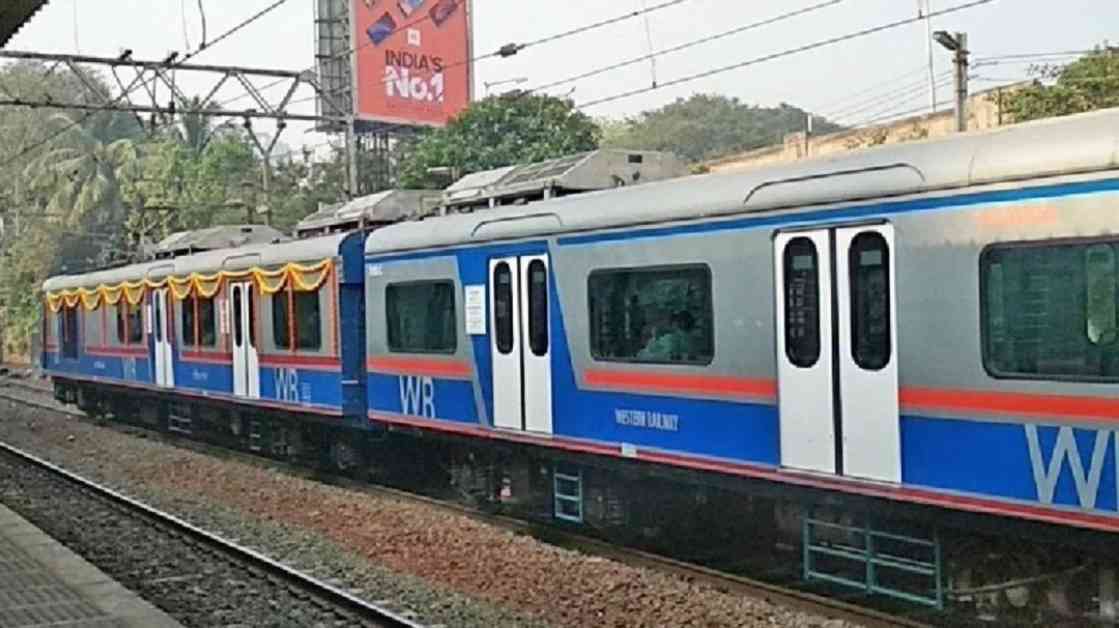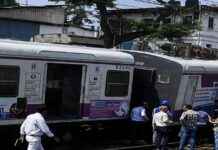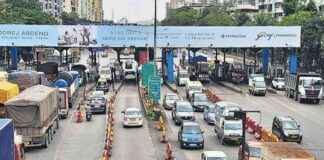AC Trains in Mumbai Facing Technical Glitch, Running as Non-AC
In a surprising turn of events, the Central Railway (CR) in Mumbai has announced that 12 air-conditioned (AC) local trains will be running as non-AC trains due to a technical glitch. The divisional railway manager’s office (DRM) has assured commuters that the AC train services on the Central Railway (CR) will resume to normal by Saturday, September 14.
The DRM Mumbai took to their official social media handle to inform commuters about the temporary change in service. They explained that due to some technical issues, the AC trains will be operating as non-AC trains on September 13. The CR also provided the timings of the affected trains for the convenience of passengers.
Commuters who hold AC train tickets or passes will have to adjust to traveling in the non-AC trains for the time being. When asked about the specific technical issues causing the disruption on Friday, the spokesperson of Central Railway, P D Patil, stated that he was currently unaware of the details but would investigate further.
This unexpected change in service comes on the heels of disruptions during the prime Ganpati festival on Wednesday, September 11. The Gitanjali Express experienced a glitch and unexpectedly halted at Titwala station early in the morning, leading to significant disruptions on the central line during peak morning hours.
Impact on Commuters and Service Disruptions
The decision to run AC trains as non-AC due to technical issues has certainly thrown a wrench in the plans of many commuters in Mumbai. With the sweltering heat and humidity in the city, the lack of air conditioning on these trains can make for a less than comfortable journey for passengers.
Many commuters who rely on the AC trains for a more pleasant and comfortable travel experience may find themselves disappointed with the sudden change in service. The unexpected switch to non-AC trains can also lead to overcrowding and discomfort for passengers during peak hours.
The disruptions caused by technical glitches like the one experienced by the Gitanjali Express on September 11 can have far-reaching effects on the overall service quality of the Central Railway. Delays, cancellations, and unexpected changes in service can not only inconvenience passengers but also impact their trust and confidence in the reliability of the railway system.
Steps Taken to Address the Technical Glitches
In response to the technical glitches affecting the AC train services, the Central Railway has assured commuters that efforts are being made to resolve the issues promptly. The divisional railway manager’s office (DRM) has stated that the AC trains will be back to normal operation by Saturday, September 14.
It is essential for railway authorities to conduct thorough inspections and maintenance checks on the affected trains to identify and rectify any underlying technical issues causing the disruptions. By addressing these problems proactively, the Central Railway can prevent future service interruptions and provide a more reliable and efficient travel experience for passengers.
Communication with commuters is also key during such disruptions. Keeping passengers informed about the status of the AC trains and any changes in service is crucial for managing expectations and ensuring a smooth transition during the temporary switch to non-AC trains.
Looking Ahead: Ensuring Service Reliability and Passenger Comfort
As the Central Railway works to resolve the technical glitches affecting the AC train services, it is essential for the authorities to prioritize service reliability and passenger comfort. Ensuring that the trains are well-maintained and equipped to handle the demands of daily commuting is crucial for providing a seamless travel experience for passengers.
Regular maintenance checks, timely repairs, and proactive measures to address technical issues can help prevent disruptions and ensure that the AC trains operate smoothly and efficiently. By investing in the upkeep and maintenance of the railway infrastructure, the Central Railway can improve the overall service quality and enhance passenger satisfaction.
In conclusion, the temporary switch to running AC trains as non-AC due to technical glitches highlights the importance of proactive maintenance and service management in ensuring a reliable and comfortable travel experience for commuters in Mumbai. By addressing the underlying issues causing disruptions and communicating effectively with passengers, the Central Railway can work towards providing a more efficient and dependable railway service for the residents of the city.




















